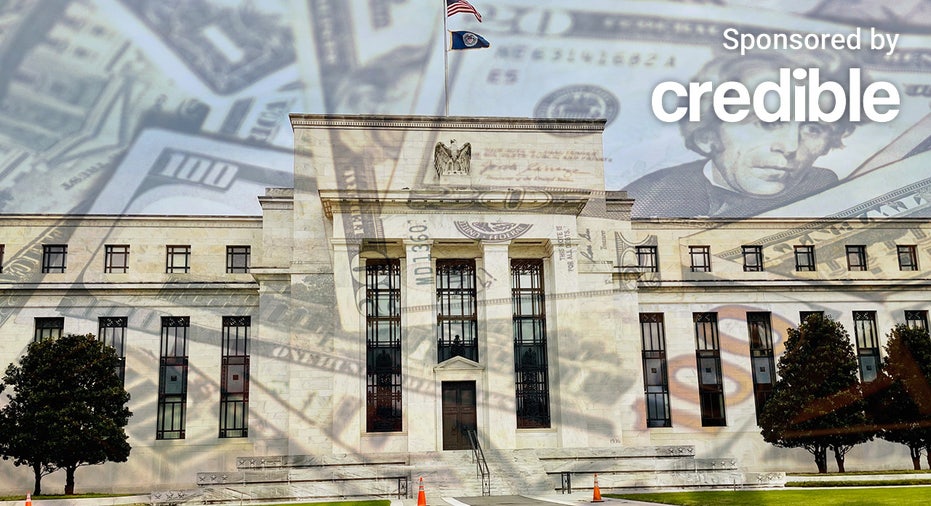Fed raises interest rates again — here’s how it affects your wallet
More rate hikes are likely to come

The Federal Reserve announced Wednesday that it was raising interest rates for the fourth time this year with yet another 75-basis point hike. (iStock)
The Federal Open Market Committee (FOMC) announced Wednesday that it is raising the federal funds rate by 75 basis points, bringing the target range to 2.25% to 2.5%. This marks the fourth rate hike of this year.
The Federal Reserve previously raised interest rates by 75 basis points in June, marking the largest rate hike since 1994. It also raised interest rates by 50 basis points in May and by 25 basis points in March. And more rate hikes from the central bank are likely on the horizon.
"Recent indicators of spending and production have softened," the Federal Reserve said in its statement. "Nonetheless, job gains have been robust in recent months, and the unemployment rate has remained low. Inflation remains elevated, reflecting supply and demand imbalances related to the pandemic, higher food and energy prices, and broader price pressures."
If you want to take advantage of interest rates before they rise further, you could consider taking out a personal loan to help pay down high-interest debt. Visit Credible to find your personalized interest rate without affecting your credit score.
JOB MARKET COULD SEE SIGNIFICANT SHIFT IN JULY, AI-DRIVEN REPORT PREDICTS
Fed makes move to control rising inflation
Inflation surged in June to a new 40-year high, marking the fifth time it's broken that record this year. Because inflation remains high, the Federal Reserve will likely continue raising rates in an attempt to bring it back down.
"Inflation continues to run too high, and the Fed remains committed to slowing it, even if it leads to a recession," Mike Fratantoni, Mortgage Bankers Association (MBA) senior vice president and chief economist, said in a statement. "Further rate increases are baked in through at least the remainder of this year. The unanimous vote for this rate increase emphasizes the commitment to this path."
FOMC members blamed Russia’s war in Ukraine for the rise in inflation, saying it is causing it to surge.
"Russia's war against Ukraine is causing tremendous human and economic hardship," the Fed said in its statement. "The war and related events are creating additional upward pressure on inflation and are weighing on global economic activity. The committee is highly attentive to inflation risks."
If you are struggling amid rising inflation, you could consider refinancing your private student loans to lower your monthly payments. Visit Credible to compare multiple student loan lenders at once and find the one with the best interest rate for you.
BANK OF AMERICA SAYS TO EXPECT 'MILD RECESSION' THIS YEAR
How Fed rate hikes affect your wallet
As the Fed continues to raise rates, here are a few ways it could affect your wallet.
Home loans
Mortgages could be affected by interest rate hikes, especially for those with adjustable-rate financing or new mortgage originations.
"Interest rates on new fixed-rate mortgages, which are a majority of mortgages, often increase after a Fed interest rate increase, which will make buying new homes or refinancing more expensive," Michele Raneri, TransUnion's vice president of U.S. research and consulting, said.
"Often when people buy a home, the amount they are willing to spend aligns with how much they can afford for a monthly payment," Raneri continued. "In order to buy the same house that one could have afforded just six months ago, consumers may select an adjustable rate mortgage because their initial monthly payments will be less than a fixed rate mortgage."
To find the best mortgage rate available for your financial situation, it’s good to shop around and compare different lenders. You can do this on the Credible marketplace and get prequalified in minutes.
Credit Cards
Interest rates on credit cards could also rise, potentially pushing more consumers to consider buy now, pay later (BNPL) products, which are rising in popularity.
"When it comes to credit cards – with the average consumer credit card balance of about $5,200 – today’s interest rate hike for consumers who do not pay off their balances in full will raise minimum monthly payments by less than $4, or about $40 per year," Raneri said. "We expect that BNPL or point-of-sale loans with deferred or no interest installment loans may become increasingly attractive choices as consumers look to avoid paying interest."
If you have a high credit card balance, you could consider paying it down with a personal loan to reduce your interest rate. Visit Credible to compare personal loan lenders without impacting your credit score.
Higher interest rates on credit products
A recession could put some consumers in a bind, especially as interest rates for many credit products rise.
"A higher interest rate environment also adds more pressure to consumer wallets, especially as fears of a recession rise," Raneri said. "To alleviate some of that pressure, consumers can pay down outstanding debt balances as much as they can, particularly high-interest credit card debt.
"They also can look to consolidate credit card balances onto a single lower-interest card or a personal loan to lower monthly payments, enabling them to pay down balances faster," she continued. "It also is beneficial to have an emergency fund of savings available for unforeseen expenses. Three to six months of expenses is a good rule of thumb, but even a much smaller amount – a few hundred dollars – can make a big difference if emergencies occur."
If you are interested in borrowing a financial product, you can speak to an expert at Credible and get all of your questions answered.
Have a finance-related question, but don't know who to ask? Email The Credible Money Expert at moneyexpert@credible.com and your question might be answered by Credible in our Money Expert column.




















